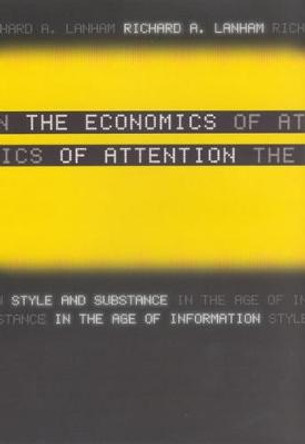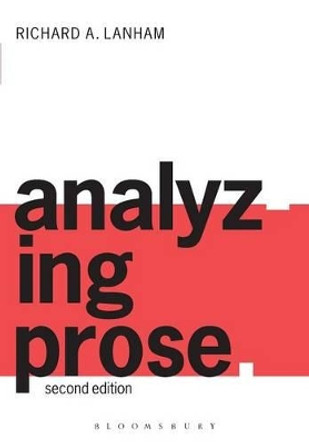If economics is about the allocation of resources, then what is the most precious resource in our new information economy? Certainly not information, for we are drowning in it. No, what we are short of is the attention to make sense of that information. With all the verve and erudition that have established his earlier books as classics, Richard A. Lanham, here, traces our epochal move from an economy of things and objects to an economy of attention. According to Lanham, the central commodity in our new age of information is not stuff but style, for style is what competes for our attention amidst the din and deluge of new media. In such a world, intellectual property will become more central to the economy than real property, while the arts and letters will grow to be more crucial than engineering, the physical sciences, and indeed economics as conventionally practiced. For Lanham, the arts and letters are the disciplines that study how human attention is allocated and how cultural capital is created and traded. In an economy of attention, style and substance change places. The new attention economy, therefore, will anoint a new set of moguls in the business world - not the CEOs or fund managers of yesteryear, but new masters of attention with a grounding in the humanities and liberal arts. Lanham's "The Electronic Word" was one of the earliest and most influential books on new electronic culture. "The Economics of Attention" builds on the best insights of that seminal book to map the new frontier that information technologies have created.
About the AuthorRichard A. Lanham is professor emeritus of English at the University of California, Los Angeles, and president of Rhetorica, Inc., a consulting and editorial services company. He is the author of numerous books, including The Electronic Word: Democracy, Technology, and the Arts, also published by the University of Chicago Press.
Reviews"In this heady glimpse at an electronic universe... [Lanham] maintains that digitized technology can democratize higher education, open up the arts to a full range of human talent and foster a convergence between the two cultures of science and the humanities." - Publishers Weekly "A cohesive and engaging overview of the challenges introduced by electronic publishing upon traditional models of research, instruction, and even the nature of academic departments." - Library Journal"
Book InformationISBN 9780226468822
Author Richard A. LanhamFormat Hardback
Page Count 326
Imprint University of Chicago PressPublisher The University of Chicago Press
Weight(grams) 680g
Dimensions(mm) 23mm * 16mm * 3mm







